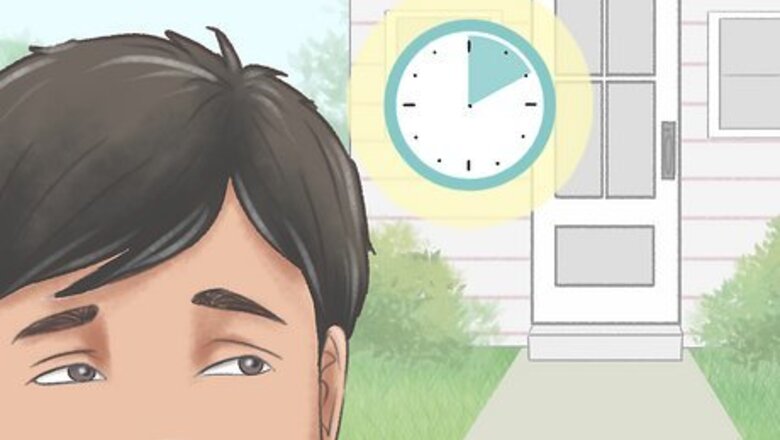
views
Preparing Your Pet for the Transition
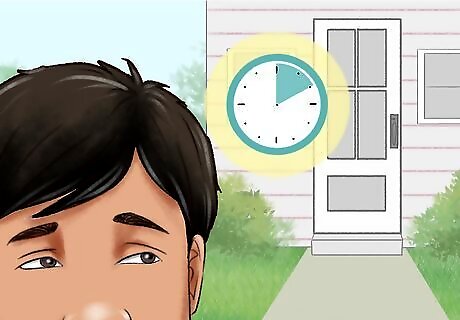
Add periods of separation to your pet’s routine. Your pet thrives on routine and before you disrupt it completely, you should prepare them well in advance. Start by adding short periods of separation to your pet’s daily routine so they get used to your absence, and the absence of others, at home. You may do this over a period of a few weeks leading up to the back school season so your pet is prepared. For example, you may try to leave your pet alone for ten to fifteen minutes in the house while you go chat to a neighbor next door. Or you may leave your pet on their own for an hour while you go run errands in the area.
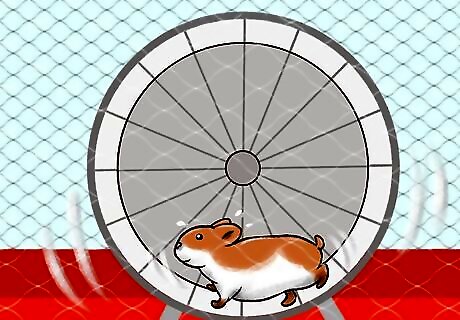
Encourage your pet to get used to playing alone. You should also get your pet used to playing alone, as it will be less strange to them once the time comes for you to leave. Give your pet toys that they can play with on their own or leave them alone with a toy so they can have a solo play session. For example, if you have a dog, you may give them a puzzle game that dispenses treats once they have solved a puzzle or figured out how to open a trapdoor in the game. If you have a hamster, you may put a wheel in their cage so they can run on the wheel to occupy themselves when they are alone. If you have a cat, you may provide a scratching post so your cat can play and scratch to their heart’s content while you are away.
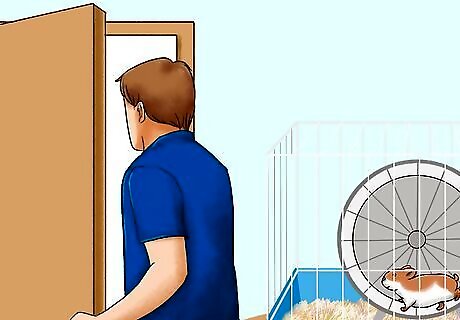
Do not make a big deal of leaving and entering the home. You should try to minimize the drama of you leaving and returning home so your pet does not get riled up when you come and go. You may try to simply open the door and exit quietly so your pet is not even aware that you are leaving. When you arrive home, you may remain quiet and calm so your pet does not become too excited by your return. Try to get others in your household in the habit of making a quiet entrance and a calm return to the home. This will allow your pet to see your leaving and entering as no big deal and become less stressed by the occurrence.
Keeping Your Pet Entertained Alone at Home
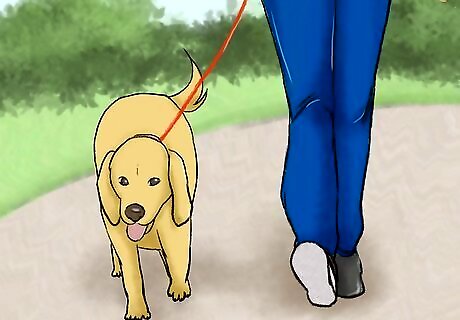
Exercise your pet before you head out. It may help to wear out your pet a little before you leave so they are more docile when you are gone. Exercising your pet and spending time with them before you head out for the day can allow them to feel calm and relaxed during your absence. If you have a dog, you may take them for a walk before you head out. If you have a cat, you may have a play session with their favorite toy so they get to run around for a little before you leave. If you have a bird or a rabbit, give them a petting session and some extra attention so they do not feel stressed when you leave.
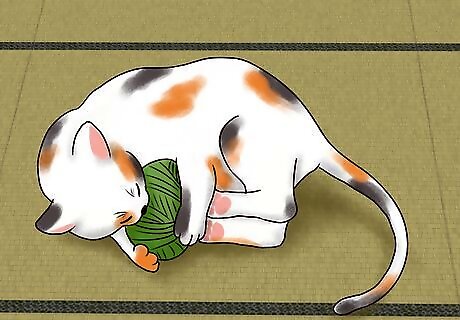
Provide interactive toys for your pet. You should leave your pet with toys that they can interact with on their own. This will ensure they do not get too bored while you are gone. You may scatter these toys around the house for your pet to find while you are gone. You may also keep these toys hidden until it is time for you to leave so they feel like special toys that your pet gets access to when you are absent. If you have a dog, you may use interactive toys like a dog conch stuffed with treats or a puzzle game. You may leave catnip in your cat’s favorite toy if you have a cat, or put a new toy in your bird’s cage to keep them occupied.
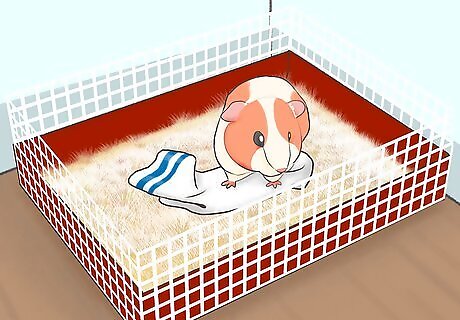
Give your pet an item of your clothing. Your pet may take comfort in having an item of your clothing near them, such as a shirt or a sock. Your clothing will smell like you and your pet may appreciate having a reminder of their owner around when they are alone in the house. You may leave an unwashed item of clothing in your pet's bedding area or in their play area for them to find.

Leave the television on or put music on. Many pets find the noise of the television or the radio soothing. You may put on your pet’s favorite show or a calming channel that you think your pet might enjoy. You may also select calming music and leave it on for your pet to listen to. There are DVDs available that are made specifically for cats and dogs to listen to while their owners are away. You can look for these DVDs at your local pet store or online.
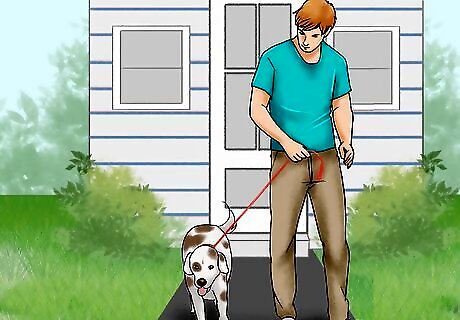
Hire a pet sitter. You can make sure your pet is taken care of while you are at school by hiring a pet sitter to spend time with your pet. You may have a pet sitter that comes by once a day to check on your pet and spend some time playing with them. Or you may hire a full time pet sitter who stays at your home while you are at school to make sure your pet is well taken care of and does not get too lonely. If you have a dog, you may hire a dog walker to come by your house and walk your dog for you while you are at school.
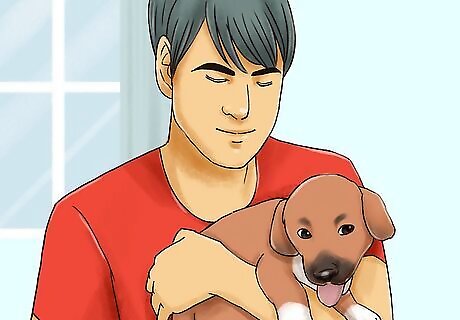
Reward your pet with attention when you get home. When you do get home after a day at school, you should reward your pet with attention and love. Give them a treat for being well-behaved while you are away and have an evening play session with them to make up for your time apart. If you have a dog, you may also schedule in an afterschool walk with your pet so they can feel rewarded and loved. You may also have an afterschool play session with your cat, bird, rabbit, or hamster so they feel acknowledged when you are back at home.
Talking to Your Vet
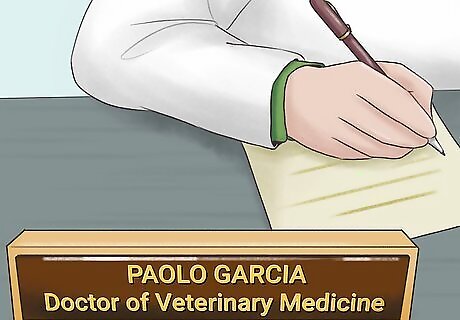
Ask your vet for advice. If your pet seems to display intense symptoms of separation anxiety, you may ask your vet for advice on how you can ease your pet into the transition. Your pet may require certain training techniques to help them become more comfortable with being alone. Your vet can recommend certain tricks and tips to help your pet get used to being on their own while you are away. Most pets will adapt to your absence within 48 hours, as long as you prepare them and set up a good environment for them at home. If they do not adapt, there may be other medical issues that could be causing the anxiety.
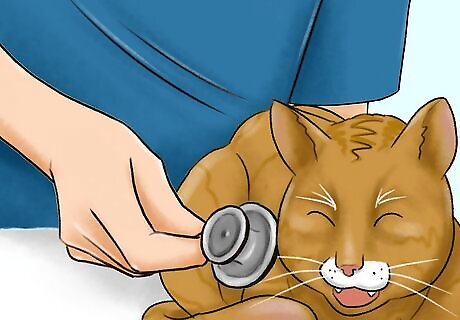
Make sure your pet is healthy before you leave them alone. Your pet should have regular check ups with your vet to make sure they are in good health and are not at risk of injury if they are left alone. You do not want your pet to become sick or ill while you are away.

Follow up with your vet if there are issues. If your dog still displays severe separation anxiety, where they urinate or defecate in inappropriate places, exhibit destructive behavior, or have intense vocalizations like whining, barking, meowing, or howling, you may follow up with your vet. Your vet may recommend making adjustments to your pet’s daily habits and training so you can both deal with the separation anxiety in a proactive way.




















Comments
0 comment